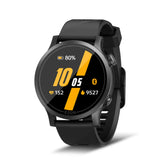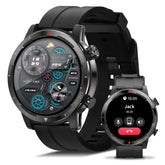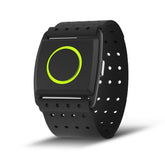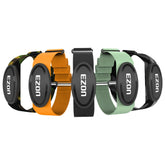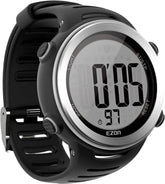Best heart rate monitor for athletes: Your Ultimate Guide
When it comes to improving athletic performance, a heart rate monitor for athletes is essential. It helps track progress and ensures you're working out at the optimal intensity.
Why You Need a Heart Rate Monitor for Athletes
A heart rate monitor provides real-time feedback on your body's response to exercise. This data can help prevent overtraining and reduce injury risk, making it an invaluable tool for any athlete.
Accurate Measurement of Exercise Intensity
One of the primary benefits of using a heart rate monitor is its ability to measure exercise intensity accurately. By staying within your target heart rate zones, you ensure that your workouts are effective without overexerting yourself.
Tracking Overall Health Data
Beyond just tracking your heart rate during workouts, many monitors also provide insights into your overall health. They measure resting heart rate, calories burned, and even sleep quality, offering a comprehensive view of your fitness journey.
Types of Heart Rate Monitors for Athletes
There are several types of heart rate monitors available, each catering to different needs and preferences. Understanding these options will help you make an informed decision.
Chest Strap Monitors
Chest strap monitors use ECG technology to detect electrical signals from your heart, providing highly accurate readings. They are often preferred by serious athletes who require precise data for their training sessions.
Wrist-Based Monitors
Convenient and easy to use, wrist-based monitors are built into smartwatches and fitness trackers. While they may not be as accurate as chest straps, they offer convenience for everyday wear and casual fitness tracking.
Factors to Consider When Choosing a Heart Rate Monitor
Selecting the right heart rate monitor involves evaluating several factors to ensure it meets your specific needs.
Precision and Accuracy
If you're looking for maximum accuracy, especially during high-intensity workouts, a chest strap monitor like the EZON ECG Heart Rate Monitor Belt C009Pro might be ideal for you.
Comfort and Fit
Consider how comfortable the device feels during long workouts. A poorly fitting monitor can cause discomfort or distraction, affecting your performance.
- Connectivity – Syncs easily with your phone or fitness app?
- Battery Life – How long does the battery last per charge?
- Water Resistance – Important if you sweat heavily or swim.
Top Features to Look For
To maximize the benefits of your heart rate monitor, look for devices with these key features.
Heart Rate Zones
Monitors that track heart rate zones help tailor workouts to your specific goals, whether you're aiming for fat burning or endurance improvement.
Recovery Tracking
Monitoring recovery metrics such as resting heart rate and heart rate variability (HRV) gives insight into your body's readiness for the next workout session.
Conclusion: Making the Right Choice
Finding the best heart rate monitor for athletes requires careful consideration of your unique needs and preferences. Whether you prioritize accuracy, convenience, or additional health metrics, there’s a device out there tailored to your requirements. Remember, the right heart rate monitor can significantly enhance your training regimen and overall athletic performance.
Incorporating a heart rate monitor into your routine ensures you’re always working out at the optimal intensity. This not only improves results but also reduces the risk of injury and overtraining. Start exploring options today and take your fitness journey to the next level.
FAQ: Common Questions About Heart Rate Monitors
Here are answers to some frequently asked questions about heart rate monitors for athletes.
What Are the Benefits of Using a Heart Rate Monitor?
Using a heart rate monitor allows you to track your exercise intensity accurately, ensuring you stay within safe limits while maximizing effectiveness. It also provides valuable insights into your overall health and recovery status.
Are Wrist-Based Monitors Accurate Enough for Serious Athletes?
While wrist-based monitors are convenient, they may not match the accuracy of chest straps. For serious athletes requiring precise data, chest straps remain the better choice.
How Often Should I Replace My Heart Rate Monitor?
The lifespan of a heart rate monitor depends on usage and maintenance. Generally, expect to replace batteries or the entire unit every few years to ensure continued accuracy and functionality.
